- Words Notion Staff
- Photography Nicole Ngai
- Fashion Jermaine Robinson
- Grooming India Rawlings
- Production Studio Notion
- Interview Louis Rabinowitz
- Fashion Assistant Israel Runsewe
- Location Dot Athena
The London producer talks taking his career to the next level with the Paco Rabanne Fund.
Mom Tudie is the definition of self-taught. He began producing and working on his own tracks in his teens, inspired by the shared love for music in all its variance amongst his family. Since then the south London producer has evolved his sound into what he’s called ‘DIY Jazz R&B’, drawing from an eclectic mix of genres with an experimental, home-grown approach.
With a range of collaborations already under his belt, Mom Tudie is a producer who shapeshifts to enhance the voices he works with, while retaining a distinctive vision and sound of his own. As one of the latest recipients of the Paco Rabanne Fund (alongside Nottingham’s Harleighblu and French-Senegalese artist anaiis), Mom Tudie has been working to realise that vision in full this year, using the brand’s support, tools and resources to bring it to life.
Designed to amplify emerging artists across the UK, the Paco Rabanne Fund celebrates the graft and grit it takes to make it in music today. Acknowledging the hard work required behind the glamorous veil of the industry, and especially the obstacles faced by creatives during the pandemic, it’s a platform that represents both a vote of confidence and much needed practical support. From funding equipment, to rehearsal space and live shows, each artist can grow in a way that’s tailored to their individual needs. The ultimate aim: maximising the impact of their efforts and facilitating the next stage of their careers.
Mom Tudie has already had his first taste of performing live, selling out his first headline show in Peckham with more to come this year. Taking a moment to reflect before he dives in, we caught up with the producer to discuss navigating his journey in music so far, how the Paco Rabanne Fund has accelerated it, and his next steps from here.

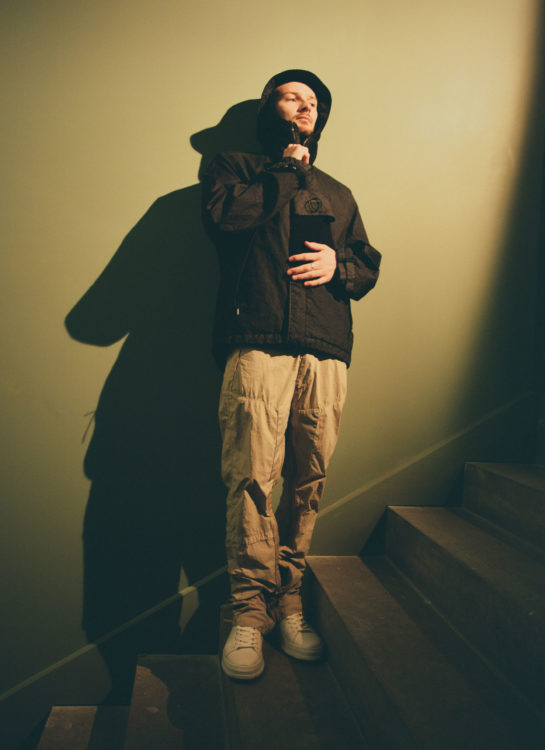
How has your identity as an artist evolved since you started out?
Influences. The more people you’re influenced by each session that you do, the more you change. When I first started out, I was scared to play trumpet and things like that. As I’ve got more confident with my playing, it’s evolved my sound. I have more live instruments in my sound now because of that confidence and I get that from working with other people as well – networking and getting to work with good players. So just networking and confidence.
Why is it important for you to mix genres in your music?
I get bored of doing the same thing every time. Sometimes people find a template that works [and] stick with it. I don’t think I’m very good at doing that and I don’t really enjoy doing it, so once I’ve made a song with a particular vibe, I want to change it up and do something different. That’s how it always is for me.
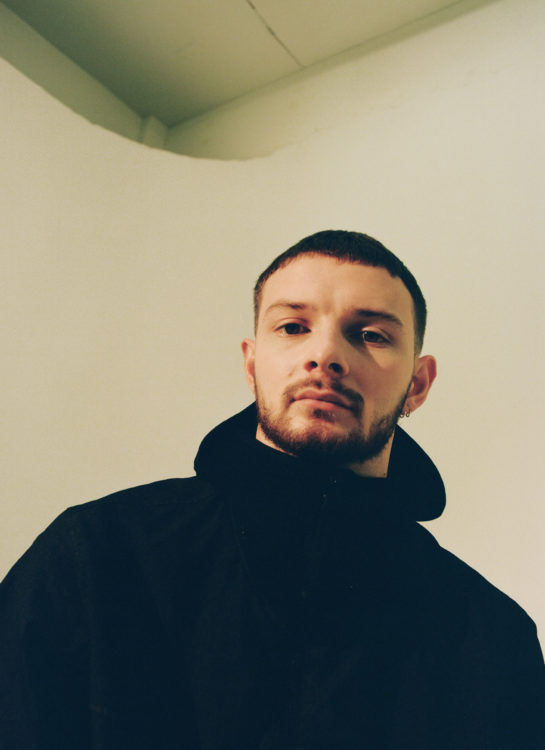
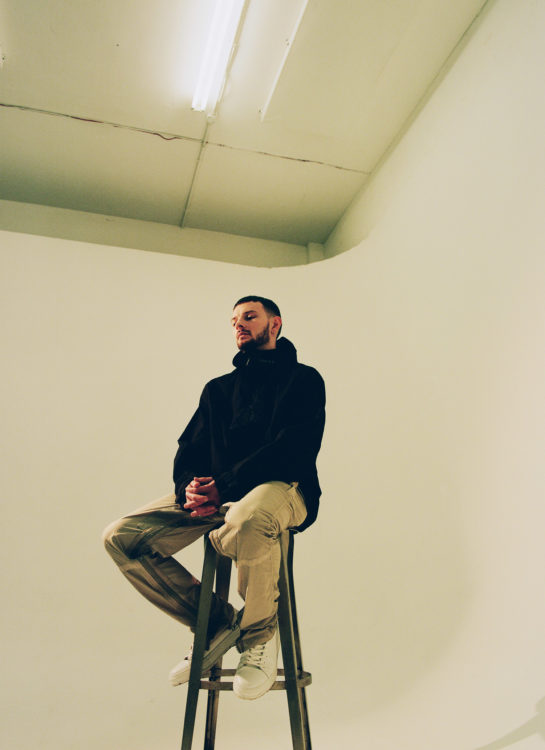
What do you think the benefits are of being self-taught? How does that DIY mentality shape your music?
It means there are less rules. If you aren’t taught any rules, it encourages more creativity. And in my opinion, with new creative stuff, there’s no wrong or right.
What other qualities do you think have helped you get this far in your journey?
I think the ‘get up and go’ qualities. Being able to just go if you want to do something, and doing it without listening to other people and external noise. Even though playing a gig might not sound like a big deal to the average person, it really is for me – and I think for lots of people. Doing an interview like this, or doing a shoot, is actually quite a potentially stressful thing to do. I need to be strong mentally to get through that. I also don’t want to work for anyone else, or anything big. I couldn’t see myself doing anything else.

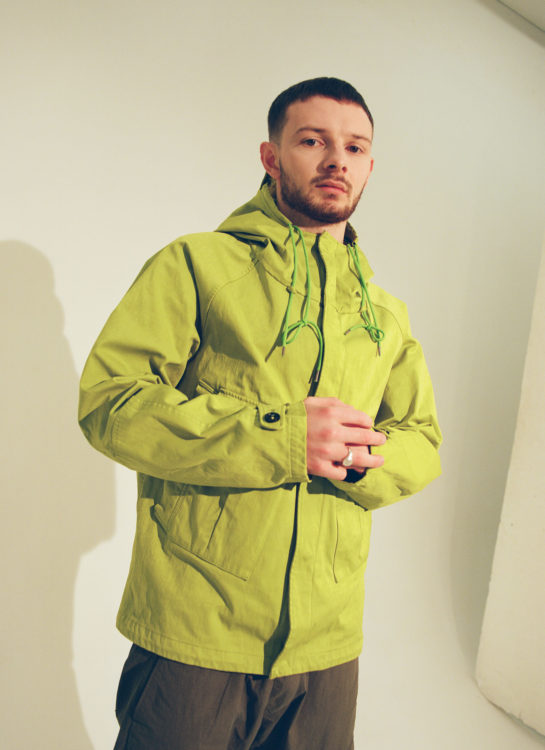
As you’re navigating these new experiences independently, how does it feel to have ongoing support from an initiative like the Paco Rabanne Fund?
It’s a big privilege to be associated with such a big brand, so firstly, honoured. I really look forward to working with them in the future.
What have you been up to since receiving the Paco Rabanne Fund and how has it helped further your career?
I’ve had a sense of security, like ‘I know I’ve got it’. I know that live music is sorted and I know I don’t need to worry about that. You’re always waiting for the next paycheck with music; it’s hard to know when money’s gonna come and how it’s gonna come. I’m really fortunate. I haven’t spent it yet, but I’m looking forward to it. I’ve actually just seen the decks that I want to buy… I think at least in the next couple of days I’m gonna pull the trigger on those. That’d be fantastic.
Have you managed to secure many IRL events since the pandemic? And how important are these live events for you as an up-and-coming artist?
I’m looking to do another live gig soon, I’m just waiting for the right time because of Covid and when I’m going to release music. And I’ve just been asked to support someone so I’ve got a gig in March coming up, which will be good fun and something to work towards.


You’ve done some great collaborations recently. How central are these collaborations – whether it’s live or in the studio – to your creative process? How do you choose who you want to work with?
So firstly, I can’t sing. That’s why I get singers onto my tunes. I wish I could! But I think if I could, I’d find it really hard to finish songs. It’s really good to get another opinion; that self-doubt sort of disappears if someone else thinks the song is OK. I find people on Instagram and through friends of friends – often I like to know or have a mutual friend with the person just because it makes life easier.
What’s the best thing about the music industry right now? And the hardest?
The best is the ability for anyone like myself to make it into the industry. Nepotism is less of an issue. Anyone with a laptop can make it and get the attention of people that want to listen to their music on social media. Independence is a little bit easier to do; you don’t need to get some big label to back you. But on the flip side, I find social media hard to balance. I do like it, but subconsciously it can be bad because you’re comparing yourself to other people all the time and it just doesn’t feel healthy.

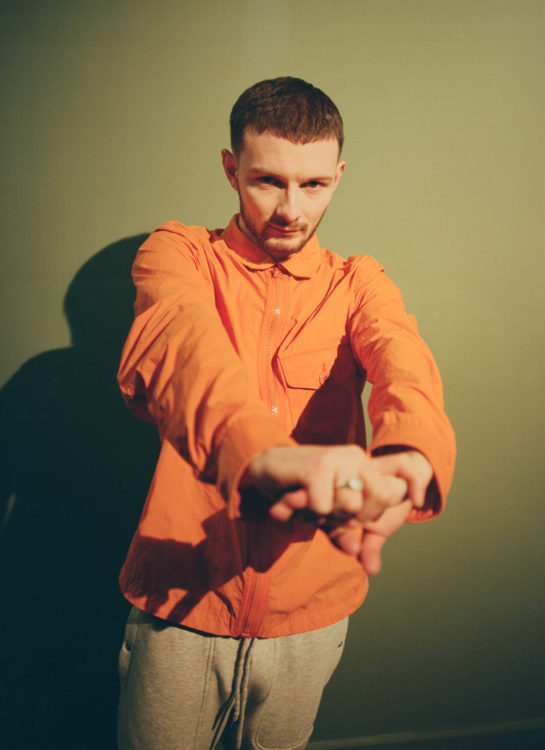
Any advice you’d give people looking to break into the industry?
Do your own thing. Don’t take too much advice from other people, because it’s not always right. Believe in yourself. Put music out – if you think it’s OK, just put it out. Try and get your friends to back you. But just do it. If you’ve got a creative bone in your body, use it. And don’t be afraid to share what you’ve made.
What’s next for you?
I’m slowly working on an album. I’m taking my time; I’m not rushing it. I’m looking forward to starting this club night with my mate. It’s basically just going to be a big boogie with all my mates, and anyone that wants to come and join us and have a load of fun is more than welcome. That’s the premise. I’ve got some music coming out with a singer called Tia Gordon, so I’ve been working on a project for her… We’re going to work on some more stuff soon, I think. It’s all ticking along.
Find out more about the Paco Rabanne Fund and follow the initiative here.


